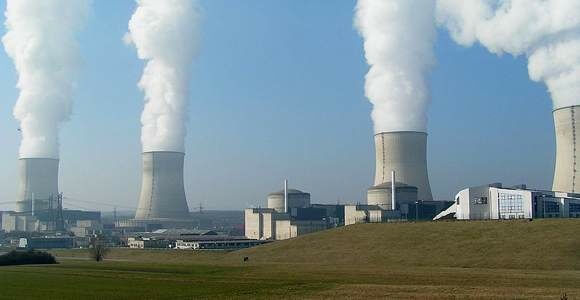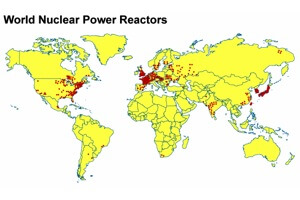Norway Begins Four Year Test Of Thorium Nuclear Reactor

A Norwegian company is breaking with convention and switching to an alternative energy it hopes will be safer, cleaner and more efficient. But this isn’t about ditching fossil fuels, but rather about making the switch from uranium to thorium. Oslo based Thor Energy is pairing up with the Norwegian government and US-based (but Japanese/Toshiba owned) Westinghouse to begin a four year test that they hope will dispel doubts and make thorium the rule rather than the exception. The thorium will run at a government reactor in Halden.
Thorium was discovered in 1828 by the Swedish chemist Jons Jakob Berzelius who named it after the Norse god of thunder, Thor. Found in trace amounts in rocks and soil, thorium is actually about three times more abundant than uranium.
The attractiveness of thorium has led others in the past to build their own thorium reactors. A reactor operated in Germany between 1983 and 1989, and three operated in the US between the late sixties and early eighties. These plants were abandoned, some think, because the plutonium produced at uranium reactors was deemed indispensable to many in a Cold War world.

Almost all of the world’s nuclear power plants are uranium reactors. But interest in thorium reactors is strong, particularly in nuclear happy China.
Some experts maintain that the benefits of thorium would be maximized in molten salt reactors or pebble bed reactors. The reactor at Halden is not ideal for thorium as it is a ‘heavy water’ reactor, built for running uranium. But it is also a reactor that has already received regulatory approval. Many thorium supporters argue that, rather than wait for ideal molten salt or pebble bed reactors tests should be performed in approved reactors so that their benefits can be more quickly demonstrated to the world.
But is thorium really cheaper, cleaner and more efficient than uranium? And if so, do the added benefits really warrant the cost and effort to make the switch? Data is still pretty scarce, but at least one report is urging us to not believe the hype.
Through their National Nuclear Laboratory the UK’s Department of Energy & Climate Change released a report in September that stated: “thorium has theoretical advantages regarding sustainability, reducing radiotoxicity and reducing proliferation risk. While there is some justification for these benefits, they are often overstated.” The report goes on to acknowledge that worldwide interest in thorium is likely to remain high and they recommend that the UK maintain a “low level” of research and development into thorium fuel.
The place where thorium is proven either way could be China. The country is serious about weaning itself off of fossil fuels and making nuclear power their primary energy source. Fourteen nuclear power reactors are in operation in China today, another 25 under construction, and there are plans to build more. And in 2011 they announced plans to build a thorium, molten salt reactor. So whether it be Norway, the UK, China, or some other forward-thinking countries, we’ll soon find out if thorium reactors are better than uranium ones, at which point more countries may want to join the thorium chain reaction.




No comments:
Post a Comment